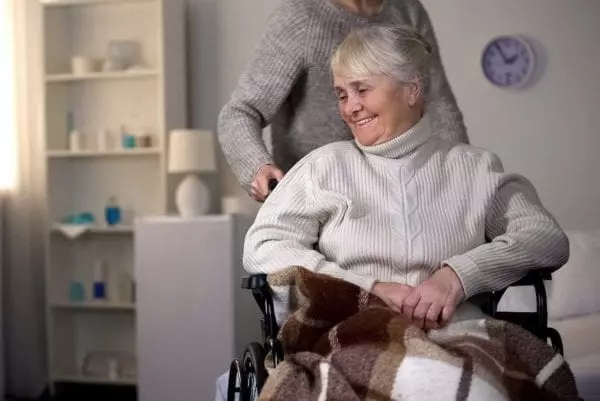
Assuming the role of a caregiver is an important decision to make. When a loved one faces a diagnosis such as mesothelioma cancer, a spouse, child or other relatives may consider becoming a caregiver.
Caregiving is a challenging but rewarding role. Before becoming a caregiver, there are many things an individual should keep in mind.
What Does It Feel Like to Be a Cancer Caregiver?
Caregiving for someone with cancer is not a one-size-fits-all role. Every cancer patient has their own unique needs before, during and after treatment. As such, caregivers have many different responsibilities that can frequently change.
Example Tasks of a Caregiver
- Managing day-to-day chores. For example, caregivers may handle the patient’s laundry and grocery shopping.
- Coordinating the patient’s care. For example, caregivers may need to administer medication and communicate with the patient’s doctor.
- Planning and decision-making with the patient and their larger health care team
- Keeping other family members and friends informed
According to the American Cancer Society, being a caregiver for someone with cancer can cause a range of emotions. Caregivers may find the role meaningful and rewarding as they help a loved one. Their duties may also give them a sense of accomplishment and help them form new relationships.
On the other hand, caregivers may feel frustrated, sad and burnt out from their responsibilities. It can be painful to see a loved one going through their illness. Caregivers must find a balance between navigating their emotions and handling caregiving duties.
For instance, patients with late-stage mesothelioma may experience severe symptoms because the cancer has spread. Stage 4 pleural mesothelioma patients have a life expectancy of about one year. As such, caregivers for these patients may experience challenges when administering treatments for symptom relief. It can also be difficult for the caregiver to update loved ones on the patient’s prognosis.
Consider Your Other Obligations
Caring for someone undergoing cancer treatment can be demanding. While a family is facing a cancer diagnosis, life continues. Patients and the caregiver will continue to have bills to pay, laundry to tend to and meals to prepare.
However, on top of the normal day-to-day, caregiving may seem like a full-time job. It can be overwhelming to take on this new role while balancing the usual daily responsibilities.
Individuals may already have part-time or full-time employment and family commitments, such as raising children. Potential caregivers should consider their own personal schedule and ongoing commitments. It may be necessary to adjust prior commitments to assume the caregiving role.
Define Your Limits and Expectations
When considering becoming a caregiver, individuals should strive to set realistic expectations. Often, caregivers may try to take on all the responsibilities themselves.
Before anyone in the family assumes the caregiving role, the potential caregiver and other loved ones should discuss the patient’s needs and the expected duties involved. By talking with other loved ones and defining expectations, families may be able to divide duties and avoid confusion later on.
For instance, individuals should keep in mind any of their own physical limitations or health problems.
Depending on the patient’s needs, caregivers may have to physically help them, such as assisting the patient out of bed. If the potential caregiver is unable to take on the physically demanding tasks, maybe another family member can handle that aspect of the patient’s care.
Depending on the patient’s condition, caregiving duties and the time commitment required may vary. For instance, if a patient is bedridden, there may be additional duties required in their care, such as preventing bedsores.
By setting clear expectations, the caregiver and others can determine who can best handle individual tasks. The family can also address any concerns about providing the patient’s needed care.
Find Your Support System
To successfully care for the cancer patient, caregivers need to take care of themselves, too. When in this giving and selfless role, people may put the patient first and ignore their own needs. But caregivers can’t fulfill their duties 24/7 without needing a break or self-care.
Caregivers need support to stay healthy themselves and be able to continue in the role. It’s important for caregivers to avoid isolation while navigating the new responsibilities.
Finding a support system can take many forms. Caregivers can seek a more informal support system like turning to friends or family to help with certain tasks. Some caregivers may prefer engaging in a support group to talk to others in a similar situation. Online and in-person groups are available through many organizations, including:
There are also other resources available to help patients and caregivers. Counseling, financial planning and other programs can help ease difficulties that come with a cancer diagnosis.
The decision to become a caregiver shouldn’t be taken lightly. It can be very rewarding but may also present challenges. By planning ahead and supporting each other, patients and their loved ones can figure out the next steps together.




